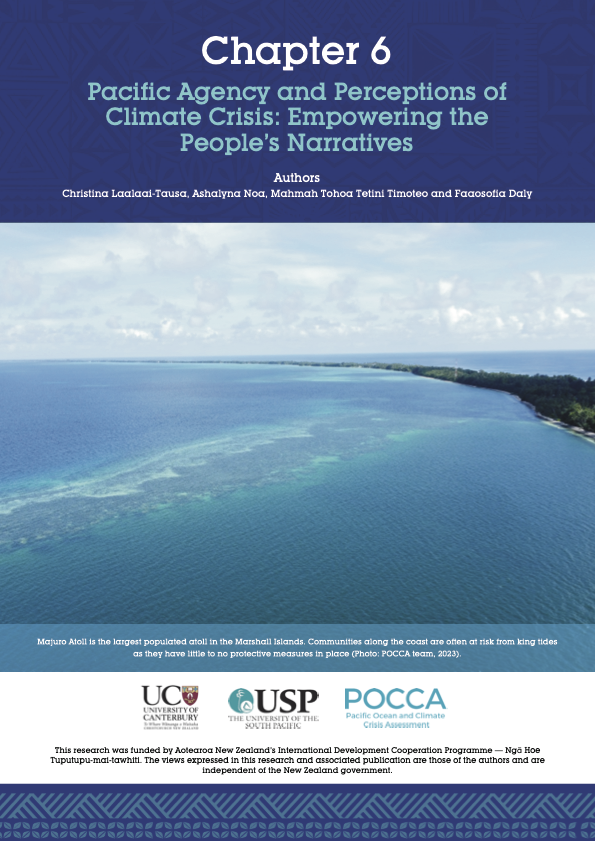
Authors
Christina Laalaai-Tausa, Ashalyna Noa, Mahmah Tohoa Tetini Timoteo and Faaosofia Daly
Abstract
Over the years, research on climate change and its impact on the region has been wide ranging and much of these have been related to scientific and technical aspects of the climate and ocean as well as studies of impact on local communities. As the climate crisis deepens, the impacts are compounding, with growing risk of cascading consequences. The need for a much more integrated and holistic approach is required to link together various disciplinary approaches, cultural narratives, and policy discourses to strengthen our understanding of the unfolding crisis as well as deepen resilience across the Pacific region. This supports the proposal by the Framework for Resilient Development in the Pacific (FRDP), which aims to promote an integrated focus on climate change and disaster risk management through ‘participatory’ and ‘equitable’ approaches. One such approach is to capture and explore our peoples’ perceptions and narratives of the climate crisis from different perspectives. This helps to mould the understanding around adaptation, mitigation and resilience building in the region. This chapter explores the crucial role of civil society in responding to the climate crisis, examining cultural, operational, and collective approaches. It also critically assesses and identifies educational pathways that can shape and inform ongoing climate crisis debates.
Rights
All rights reserved. This book is in copyright. No part must be republished without permission of the publishers.
